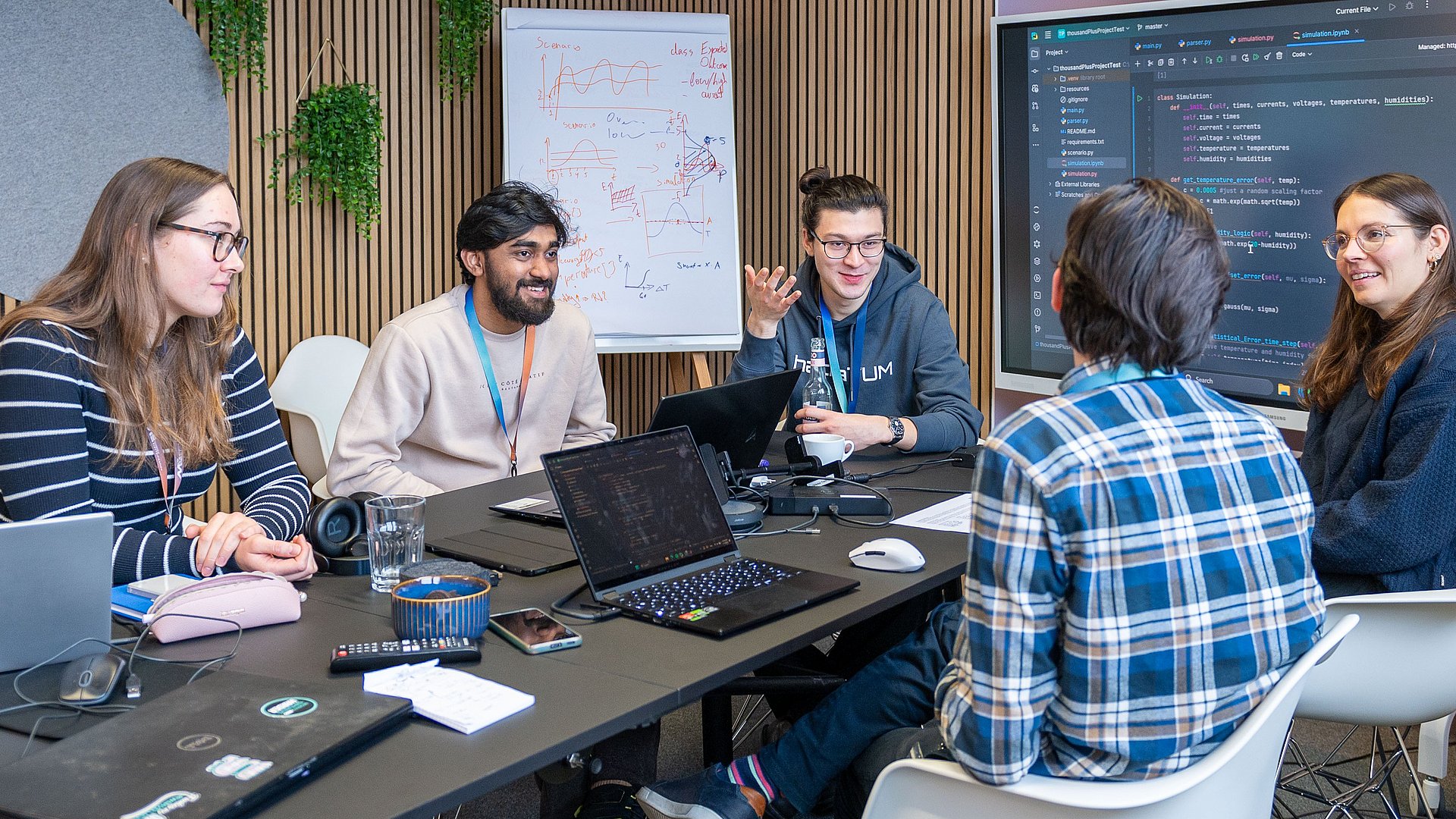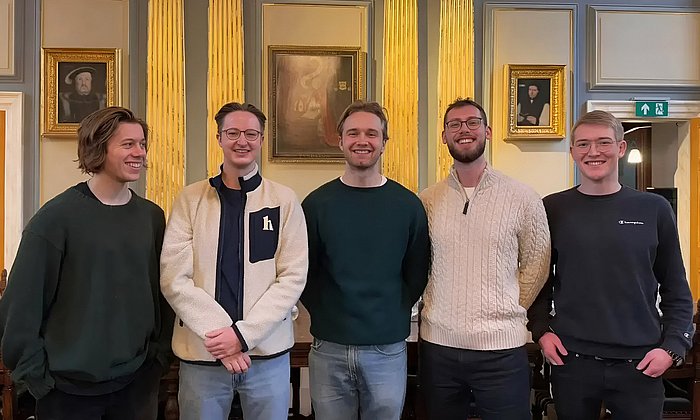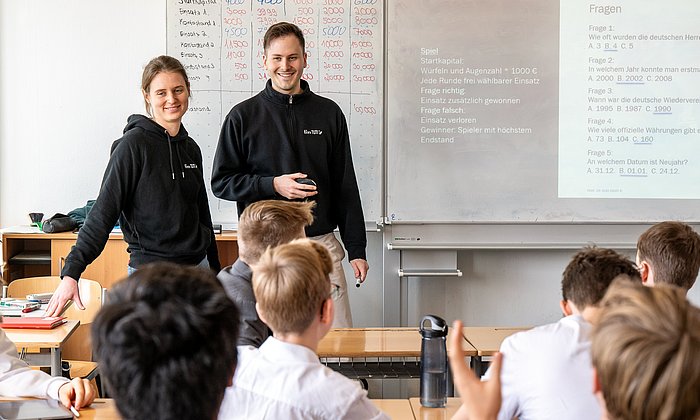1.000+ Project Week
Students bring fresh ideas to companies

Master's students from many different nations, all TUM schools, and even from TUM Asia were represented. They formed 40 interdisciplinary teams based at 35 companies from Ottobrunn to Berlin in sectors such as IT, automotive, MedTech, security, banking, insurance, construction, consulting, and mobility. This year's participants included three companies from the Heilbronn region.
They come from the Peruvian highlands and the Egyptian metropolis of Cairo, and their education led them to the TUM Campus Heilbronn: Jose, a Master's student in Management & Digital Technology, and Mohamed, a Master's student in Information Engineering. For one week, they entered the world of an IT company, where they solved a real entrepreneurial task as part of the 1.000+ Project Week.
They are nervous on the last day before their final presentation. But there is no reason to be. After all, Mohamed and Jose have devoted themselves thoroughly to their challenge during this week. The task was: “Develop a tool with which we can automatically test the processes of our project management software for errors.”
Errors discovered in a matter of seconds
Such a digital tool eliminates the need for laborious manual checks. This is not an inconsiderable advantage for the company, and it is a responsible task for the two students who developed a suitable tool with the help of Java and Playwright in a limited time of just a few days. “We had to put in a few night shifts,” said the two with a smile, and you can sense their relief at what they have achieved.
The developed test automation really does save a lot of time. Mohamed has calculated that it speeds up the testing process fivefold. He demonstrates this on the screen. The tool detects an error and shows it as a video sequence within seconds.
Challenge-based learning
Meanwhile, a team of four from TUM works at a chemical manufacturer: Natalie studies Chemistry, Nagarajan Sustainable Management and Technology, Sriram, and Komal Chemical Biotechnology. Their task: establish an innovation process for a chemical company specializing in additives.
It was a challenging task from the initial ideas to the final presentation, which the four mastered in the limited time. They have developed a tool to evaluate new ideas based on their feasibility, relevance, and potential impact. The students also provided a case study: they suggested that company representatives focus more on biotechnology and launch bio-based additives on the market. These can be produced from fruit peel, seeds, or plant proteins. The company could also pay more attention to biodegradability – the students suggest natural products such as xanthan gum, rosin resin, or rice bran wax. They have come up with an implementation roadmap for this.
Concepts for the future
Five young men and women from Asia are working simultaneously at one of Europe's leading IT service providers on a real business challenge in the early development phase of an AI project. Modern AI systems increasingly use external input and are constantly trained by human feedback using “human in the loop” algorithms. To increase acceptance of the necessary human feedback, they are working on developing a fair compensation concept for the future.
The students Ying, Mohit, Mohammadreza, Mayank, and Shabnam are currently completing their Master's degree at the TUM Campus Heilbronn. Mohammadreza is participating in the project week for the second time this year to learn about the German labor market. “For me, it was a valuable learning process and an opportunity to work with people from different professional backgrounds and perspectives,” he says, looking back.
Long-term fruitful collaboration
The feedback from the students is consistently positive. Mohamed summarizes their experience: "The collaboration was a lot of fun. Everyone here was so accommodating and friendly. I give the campaign a 12 on a scale of 1-10!" And Nagarajan adds: “The way our supervisors looked after us was perfect.”
While the students benefited from challenge-based learning in interdisciplinary teams and insights into company culture, the companies also used the “1000+ Project Week” as an ideal opportunity for employer branding. That sounds like a fruitful long-term collaboration between TUM and medium-sized German companies.
- The great added value of the 1.000+ Project Week is that the student teams are put together on an interdisciplinary basis according to the needs of the individual companies. They work hand in hand with industry experts using the challenge-based learning approach.
- At the TUM campus Heilbronn, TUM researches how companies can shape digital transformation. The focus is on medium-sized family businesses and start-ups.
Technical University of Munich
Corporate Communications Center
- Frank Lutz & Julia Rinner
- presse@tum.de
- Teamwebsite
Contacts to this article:
Nina Santner
Technische Universität München
Academic and Student Affairs
n.santner@tum.de



